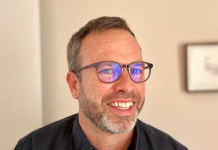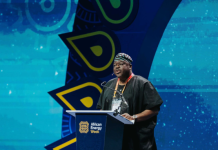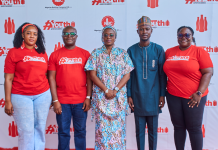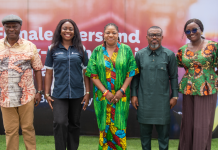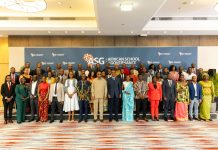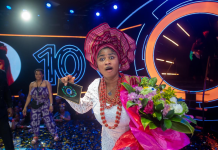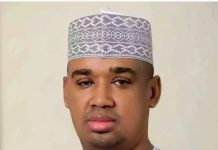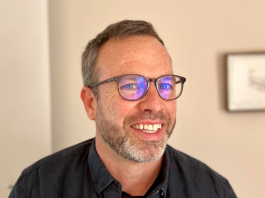Writing Across Borders: How a Nigerian Writer Found Voice in Cross-Cultural Stories
Whether scripting for screen or crafting bold short fiction, Nisola Jegede is a writer who journeys between worlds. Born in Nigeria and currently based in the UK, she draws deeply from African history, mythology, and lived realities to create stories that challenge conventions and reframe silence. From her early days as a story editor at Goddey Media Studios to her celebrated work during the COVID-19 lockdown—where she published Unwilled, What Lies on the Other Side, and Naked Truth—Jegede’s voice has remained clear, courageous, and rooted in the African experience.
In this interview with our correspondent, we explore her influences, her fascination with African fantasy, and mirror the complexities of our times.
NW: Can we meet Nisola Jegede
NJ: I think the best way I can describe myself is as a writer who tells stories rooted in African experiences. For the past three years, I’ve been fixated on African fantasy stories, because I believe what non-Africans often label as myth is, in fact, what truly defines Africa and her people. I would like to show that aspect to the world. The recent stories I have been developing focus on that. So, I would say I am an African fantasy writer.
Academically, my foundation in storytelling began with a Bachelor’s degree in English and Literature from Federal University Oye-Ekiti, further honed by a Master’s degree in Scriptwriting from Bournemouth University.
I have always had two jobs. One that feeds me and the other one that I feed. Bid writing jobs feed me. I have always been that. Creatively, I have worked as an editor editing the English Writers Journal at Federal University Oye-Ekiti. Lately, I’ve been contributing to “Ode to Africans,” a social media platform on YouTube and TikTok dedicated to sharing compelling African stories.
NW: Tell us about your Nigerian roots and how it has influenced your journey through various writing roles and storytelling, particularly as you engage with diverse cultural contexts?
NJ: Hmmm. That’s a deep one. My Nigerian roots are the reason I am this kind of writer. I always knew I wanted to write, but the question was—what exactly? What kind of stories would I love to tell? I found the answer that during a school assignment that required my classmates and I to interview Ifa priests. My group was fortunate to meet a priest who truly understood the depth of the tradition. That interview gave me the clarity I needed.
That encounter ignited my passion for discovering who Africans were before colonial history rewrote so much. We got to learn that our cultures or traditional religions are not as demonic as people often believe. They are meant to do good. Sure, Yes, some people may twist them for harmful purposes, but real people use it for good. I am a Christian and that’s for sure. I’m not a practicing traditionalist because I feel God’s essence deeply. However, now, I am also interested in culture and traditions, and this is what I showcase in my stories.

NW: In 2022, your work was featured in a cross-cultural journal linking Nigerian and Indian writers. Can you describe that experience? What were the unique aspects of collaborating across these two rich literary traditions, and what did you learn from it?
NJ: Okay. So, I feel Indians and Nigerians are the same, but in different ways. Yes, I know that sounds contradictory, but it’s true. But we are both challenge-driven, yet hardworking. We share so many values and opinions, and that’s why I believe the book, In Her Urban Maze, is really about re-echoing what makes us alike.
Both Nigerian and Indian writers carry oral traditions alongside colonial inheritances. We write in English, but often against it, bending the language to suit our own truths. That’s something I deeply respect. However, what I learned from the collaboration is how both countries’ traditions use silence as a form of power in our stories. Honestly, I feel so honoured to have worked on such a great literary piece.
NW: Congratulations on being shortlisted for the New Writing North Writing Residency. What was that journey like, and how did your Nigerian roots influence your academic storytelling?
NJ: Thank you. Being shortlisted for the New Writing North was affirming for me—very affirming— especially as it came at a time when I was starting to doubt my writing abilities. I had just finished my master’s and anytime I sent my stories to my writing friends, they often misunderstood what I was trying to say. I was really happy when I got the email since being shortlisted would lead to a fully funded writing workshop. You know, through the residency, I actually attended a writing workshop organized by Steven Hall. It was so surreal that he read my work and gave suggestions. I was able to understand how to balance words in my stories. Sometimes, my words can be too literary and at other times, businesslike. The session was a huge one for me.
NW: Having studied and worked in both Nigeria and the UK, how has living and writing in a different cultural environment influenced your perspective as a Nigerian writer? Do you find it enriches your ability to explore cross-cultural themes?
NJ: Absolutely. Living and writing in both Nigeria and the UK has deepened my understanding of how stories travel—and where they stumble. It’s one thing to write from within your culture, where certain references or silences are understood without explanation. But writing in a different environment forces you to become both translator and storyteller. You begin to ask yourself: What do I need to explain? What do I refuse to dilute? That, for me, is the main crux I wrestle with when writing now.
NW: I will like to know if themes around migration inform your narrative choices as well?
NJ: Truth be told, they rarely do. I think I am more interested in the psychology of what makes Africans, Africans right now. So, that is what I show in my work.
NW: As someone whose work spans Nigerian and international audiences, what are some of the most significant challenges you’ve encountered as a cross-cultural writer, especially in terms of language, authenticity, or audience expectations?
NJ: Seriously, I will say it is the same, writing for both Nigerian and international audiences—especially across the UK and Nigeria—often means navigating a delicate pressure: the urge to explain cultural nuances, or worse, to soften them. But diluting cultural details can strip a story of its power. There’s a constant tension between being accessible and staying authentic, and it’s a balance I’m always negotiating.
NW: What, in your opinion, are the unique strengths of Nigerian storytelling that allow it to transcend geographical and cultural borders and connect with diverse readers globally?
NJ: I say our unique storytelling strengths as Nigerians will be the layered body language our characters display and the communal narrative voice. Our best stories show these two factors and that is why I feel they connect with diverse readers, especially in some part of Asia where I feel we share similar cultures and upbringings.
NW: As a Nigerian writer who has successfully navigated both local and international literary spaces, what advice would you give to emerging Nigerian writers who aspire to have their stories reach a global audience?
NJ: Hmm. This will be a cliche one but it is the only thing that has brought me this far. Don’t give up. The best stories have been rewritten so many times before that level of expertise is achieved. Always rewrite. It is hard, but necessary.
NW: Finally, what’s next for Nisola Jegede? Are there any new stories or scripts we should look out for?
NJ: I am taking a break from scripts and going into literature fully. For two reasons, I love literature. I truly do. Also, due to the kind of genre I write, the feedback I have gotten lately is to make them into novels before movies.




